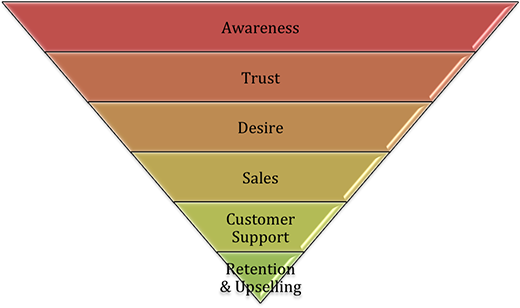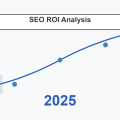If you keep a keen eye on online marketing, SEO, and website development, you must surely have come across the term ‘funnel’ in a blog post, article, or even an online ad.
If you have never heard the term, we’ll explain what they are compared to normal websites. For those who have come across funnels, we will explain further why they are going to play an ever-increasing role for local businesses as part of their online marketing strategies.
Websites as we currently know them come in all sizes and with multiple reasons for their existence. Some have only 4 or 5 pages; others have hundreds. Some websites exist to inform, others to entertain, and if you are a local business with a website it is safe to say that you want it to generate leads and/or sales for your business.
The problem that is increasingly becoming a problem is that the way in which the internet is used today doesn’t always lend itself to large-scale websites. The days of computer users sitting at desks, staring at their screens as they surf for hours on end through websites are coming to an end. Nowadays, with super-fast broadband and the majority of internet usage happening on mobile devices, users’ attention spans are diminishing.
Today the internet is done on the go and it is literally always accessible. We surf while travelling, eating, socialising, walking down the street, while watching TV and you may even have seen politicians sitting in parliamentary debates and Tweeting at the same time.
The point is that the attention span of internet users is decreasing while the distractions that surround them are increasing. With these factors now in play, monolithic and out-dated websites will not cut it in many sectors, and that is especially so for many local businesses.
One of the reasons for this is so many websites do not seem to have a specific purpose. Worse, many of them look so confusing when you land on them, the first instinct is to click away. For SEO purposes, that is not good because Google recognises that and basically gives your websites a nudge downward in the rankings.
Take a look at a random selection of a dozen local websites and you will soon see those that offer so many options, it is actually easier to become confused than not. You’ll see six or more drop down menus with ten or more sub-menus, each linking to all manner of pages. There could be text saying, ‘Click Here’ for this, or ‘Click Here’ for that. There may be an opt in box. A sales video. The list goes on.
There is an old proverb that states, ‘The confused mind says “No!”’. For local businesses, that means that even if you have the best products and services available, and the route to them for customers is via your website, they are highly likely to say “No” if there is no clear path for them to take. It is akin to driving them into a brick wall in the sense that they have got this far, and no further.
This brings us to funnels and how they differ from the sort of website we have just described. Funnels differ in that they are very simple, they do not confuse users who land on them and they fulfil one specific, but very important, function in relation to your online marketing and sales.
One of the most common funnels is one where you wish to capture leads. Either through PPC advertising or excellent SEO, traffic comes to the first part of your funnel and, normally in return for their email and/or phone number, you give them something free or a discount coupon. For many consultative type businesses, this could also be a form where the lead fills out details in order to call them back and speak to them.
Another type of funnel is the sales funnel where the prospect lands on the front page and is then either offered a discount for the service or product offered or shown a sales letter or video. A slightly more advanced version of this is where a webinar forms part of the sales process.
The point about either the lead funnel or sales funnel is, in both cases when a visitor lands, there is only one thing for them to do. It is clear what action they need to take, so confusion does not exist. Nor do distractions exist, so they are more likely to focus on that page, than they might on a website with all the proverbial bells and whistles.
There is no doubt that funnels are a major tool being used successfully by millions of local businesses, with literally billions of dollars being earned as a result of them. They can also be promoted via PPC advertising or ranked using SEO, and as the internet becomes increasingly mobile, they will soon be essential to any local business who wants to capture leads and sales.






